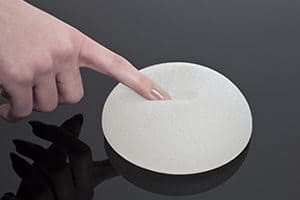
Most people have an idea of how new drugs are tested and approved to ensure the safety and efficacy of a new medication. Clinical trials are normally performed with stringent guidelines before a new drug is made available to the public. Medical implants, by comparison, are not required to undergo clinical trials and many of […]
 Most people have an idea of how new drugs are tested and approved to ensure the safety and efficacy of a new medication. Clinical trials are normally performed with stringent guidelines before a new drug is made available to the public. Medical implants, by comparison, are not required to undergo clinical trials and many of these devices are designed to be implanted and last ten or more years.
Most people have an idea of how new drugs are tested and approved to ensure the safety and efficacy of a new medication. Clinical trials are normally performed with stringent guidelines before a new drug is made available to the public. Medical implants, by comparison, are not required to undergo clinical trials and many of these devices are designed to be implanted and last ten or more years.
Thousands of women around the globe have been subjected to terrible pain after having a transvaginal mesh (TVM) device implanted. This is a device meant to treat pelvic organ prolapse (POP) and stress urinary incontinence (SUI). These conditions are meant to be improved when additional support is provided by the mesh implant for sagging pelvic organs and muscles. Unfortunately, in many cases, the women suffer severe pain and injury due to complications resulting from the implantation, reports the Conversation.com.
In 2016, the FDA, made transvaginal mesh implants ineligible for the FDA’s 510(k) clearance program. This is a process that allows a new device to come to market without the stringent testing required of new products provided it can show it is “substantially equivalent” to another product already approved by the FDA.
Many plaintiffs have cited the controversial FDA 510(k) “fast-track” approval process has led to the availability of products without sufficient screening. So, the question is asked how does a product that has caused so much damage to women’s bodies, continue to be sold?
A regulator determines how similar one implant is to another, but they can be significantly different from each other, and get approved nonetheless. When independently reviewed in the United Sates, the substantial equivalent process was said to give no evidence that “the cleared device was safe or effective.”
The agency has reclassified TVM from a moderate-risk device to a high-risk device. This means that TVM device manufacturers must go through the FDA’s rigorous pre-market approval process and submit data proving the devices are safe and effective.
The national personal injury law firm Parker Waichman LLP has extensive experience and success in defective medical device litigation. Attorneys at the firm are available to answer any questions about filing a surgical mesh lawsuit.
 Despite these regulations that have been put in place, there have been three scandals recently concerning medical implants: metal-on-metal hips, breast implants, and mesh implants. Since it appears that medical implant regulation is not working, it has left thousands of people concerned about the long-term effects of defective implants in their bodies.
Despite these regulations that have been put in place, there have been three scandals recently concerning medical implants: metal-on-metal hips, breast implants, and mesh implants. Since it appears that medical implant regulation is not working, it has left thousands of people concerned about the long-term effects of defective implants in their bodies.
Scores of people have been left in pain, possibly unable to work. Other have suffered broken relationship and feel despair due to the medical implants they were told would better their lives, not worsen it. It remains to be seen how these situations can be prevented and rectified in the future.
Although some companies make claims that their primary responsibility is to their patients, clearly, most companies exist to make money. This means bringing implants to market as fast as possible, and selling as many as they can. If regulations do not require expensive, long clinical trials, why would the companies spend the money?
Another factor is the regulators themselves. These agencies are frequently guided by their government to work with industry to bring innovative medical implants to the public, both for the benefit of the manufacturers (who pay taxes and provide jobs), and patients. If the benefit is more towards the industry, known as “regulatory capture,” a regulator that has been set up to act in the public interest, instead, may lean more towards the benefit of the industry it is responsible to regulate.
Rather than focusing on a safer, longer lasting, or less expensive product, a patent may be obtained, which may be used to generate income due to the term “innovative.” A safer product or implant, does not appear to carry the same potential financial gains as an innovative implant.
A third factor is a lack of transparency over the approval process. If the implant was approved in the European Union (EU), the information is confidential. This makes the assessment difficult, of how an implant was tested and what the test results were. Therefore, the evaluation on an implant’s performance will emerge only after implantation, perhaps two, five, or more years down the line. If the implant is deficient, it is too late. By then, thousands of people may be implanted with a substandard device.
Transparency must be improved. There is a need to know what tests were done on implants and what the results were. With enhanced transparency in place, it might help to make implant scandals a thing of the past, and not the ongoing concern to recipients that currently exists.
If you or someone you know suffered injuries or complications due to medical implants, you may have valuable legal rights. Parker Waichman personal injury attorneys offer free, no-obligation case evaluations. For information, please contact us at 1-800-YOURLAWYER (1-800-968-7529).


